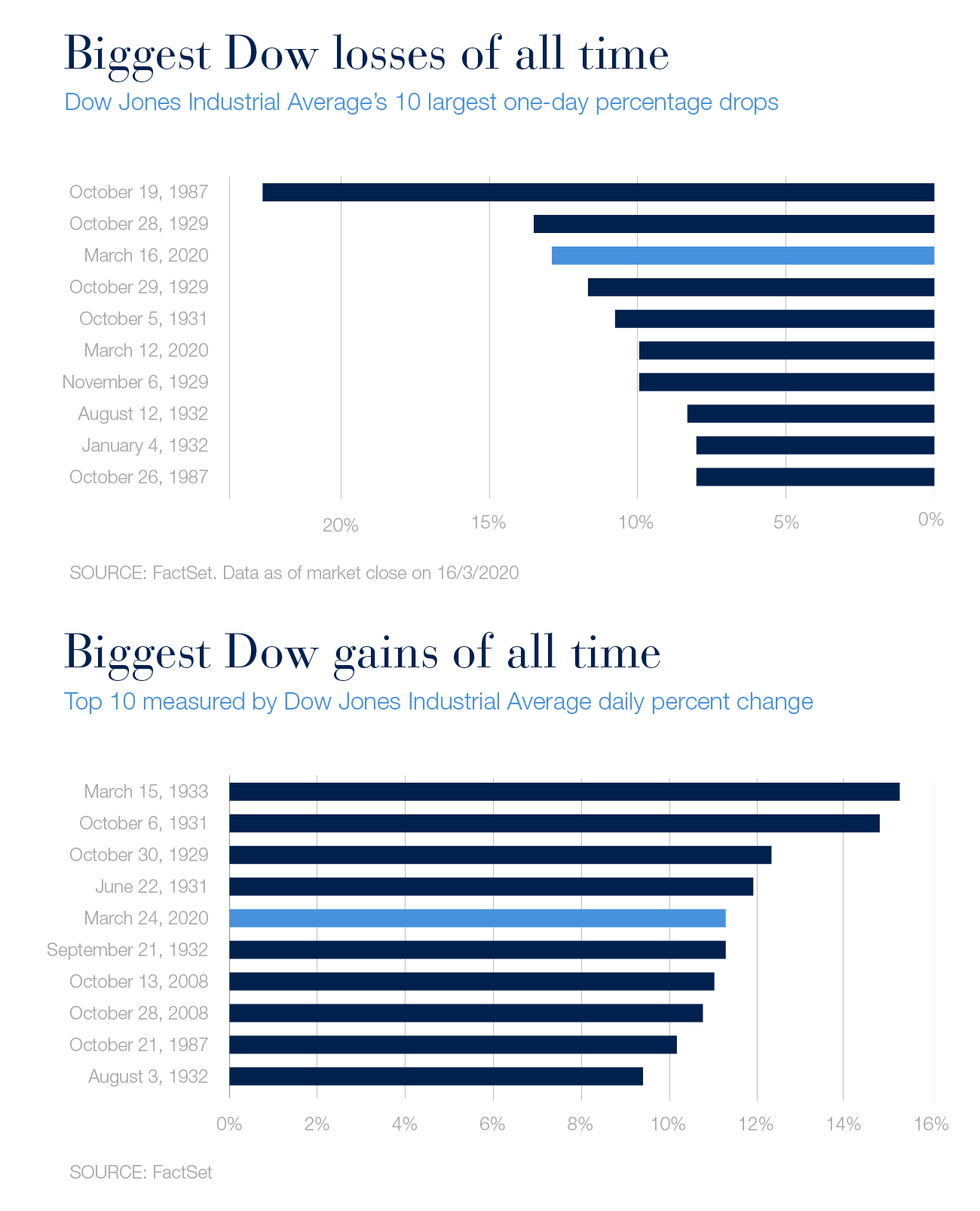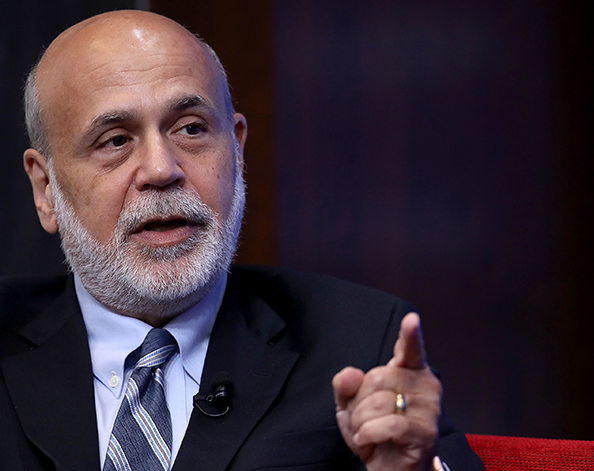The week in review: Finding rhyme in reason
23 April 2020
The Coronavirus crisis resembles many of the financial meltdowns of previous eras, but it’s also unique in many respects.
5 min read | 45 min video
We really do live in unprecedented times. At no point in history have Governments intentionally and deliberately shut down their economies or forced businesses, factories, shops and restaurants to close. So given such uncertainty, it is inevitable that we reach into the past to try and find a parallel to the experiences we are living through in the present.
One of my favourite quotations is the clichéd (allegedly) Mark Twain line of history not repeating but rhyming. As it happens the rhyme here probably is more complicated but I can see some parallels with 1973 and the 3 day week ( which as a child I quite enjoyed) in terms of behaviours having to change. I can see the deflationary risks following the 2007 financial crisis. Or the nasty recession following the bursting of the dot com bubble in 2000.
The rapid declines in stock markets are also highly reminiscent of the collapse in markets in 1987 ( can anyone now remember why that happened other than a big storm?). But the rhyme most frequently used is that this Covid-19 crisis is somehow similar to The Great Depression of the 1930s, even this week the IMF published their quarterly entitled ‘The Great Lockdown: Worst Economic Downturn since the Great Depression’.
Is that really the case? Are we really about to live through the most profound economic depression in modern times?
There are certainly similarities between what we are witnessing now and The Great Depression, not least the gravity of both, the personal and economic cost and sadly the human tragedy. The stock market volatility and economic shocks could also be considered similar.
Recently, there have been similar market falls and rallies to what was seen in the 1920s and ’30s, as you can see on the charts below. So definitely the market volatility over the last month could be said to rhyme:

As a result of the Covid-19 lockdown, the expected falls in GDP, as the IMF refer to, are unprecedented outside the Great Depression. JP Morgan, for instance, is forecasting US GDP to fall 40% in Q2 and unemployment in the US to rise to a staggering 20%, that’s one in five of the US workforce out of work.
Between 1929 and 1933 US GDP fell around 30% and in 1933 unemployment in the US peaked at around 25%. To get that into context US unemployment peaked at 10% in 2009. So again the similarities in terms of falls in economic output and enormous impact on the job market also rhyme.
But I am pleased to say this is where the similarities end - there is no more rhyme.
I think to really picture why what we are experiencing now is so different to the Great Depression, it is worth looking at what most people consider the causes of the Great Depression, and as ever there isn’t a singular event.
The Stock Market Crash of 1929 is widely seen as that ‘singular’ catalyst of the Great Depression but the Crash itself was not the cause. As it happens, the market recovered almost 50% of its loses by mid-1931 and was briefly back to the level it started in 1929.
The causes would be seen now as a series of policy errors that compounded the ever-worsening economic crisis which only ended with the outbreak of World War II. The stock market didn’t hit a new high until 1954.
Those policy errors are simply unthinkable in the current social and economic times. Central to US Government policy in the 1930s was the ‘Leave-it-alone Liquidation’ or ‘laissez-faire’ policy. President Hoover bitterly wrote in his memoirs that his Treasury Secretary Andrew Mellon ( scion of the Banking family) ‘felt the government must keep its hands off and let the slump liquidate itself.....Mr Mellon had one formula ‘Liquidate labor, liquidate stocks, liquidate the farmers, liquidate real estate...it will purge the rottenness out of the system’.
The US Government put up tariffs to protect US business but only started a global trade war. The Fed tightened monetary policy to protect the Gold Standard causing further deflation. To ‘purge the system’ Government policy allowed the Banking collapses, the corporate bankruptcies, the homelessness, the poverty to spiral out of control. By the time the US Government did try to intercede it was too late. The first attempts to shore up the Banking system weren’t until 1932 - by the end of the following year a third of all US Banks had collapsed.
The lessons from the past have been learnt. In this crisis, the Federal Reserve and the US Government have done entirely the opposite. Within days of the crisis unfolding, interest rates have been cut to zero. Trillions of dollars have been pumped into the financial system to ensure that the Banks have adequate liquidity. Not one Bank will collapse in this crisis.
Trillions of dollars are being spent to ensure workers will either be furloughed by their employers or if claiming unemployment benefit, in some cases will receive more than they received when working. Direct payments of $1,200 per adult and $500 per child are being made to millions of US Citizens. Banks will offer homeowners mortgage holidays, there will be no homelessness as a result of this crisis. The US and the UK for that matter have taken unprecedented steps to protect their economies and their people.
The lessons from the past have been learnt. In this crisis, the Federal Reserve and the US Government have done entirely the opposite.
The real challenge in the Covid-19 crisis is the scale and speed of the downturn. The enforced closure of significant proportions of the economy results in an unprecedented fall in GDP in a very short space of time.
The risk, despite the bold and co-ordinated response from policymakers, is longer-term collateral damage, as businesses fail and joblessness rises. A significant rebound is likely during the second half of 2020, but may not be sufficient to overturn the decline.
Having said that, this will be temporary and this is the most important difference. At worst it will be months, but hopefully, it’ll be weeks before the lockdown ends and economies can re-start. Even if it takes longer to overturn all the declines from the Covid-19 crisis, it is hard to imagine anything like the years of grinding economic decline and resultant personal destitution of The Great Depression.
Now don’t take my word for it. I doubt there is anyone living on the planet that knows more about the Great Depression than former Chair of Federal Reserve Ben Bernanke. He made it his life’s work to understand why the Depression happened and how to avoid another.
He was once asked why he had studied the Great Depression in such detail - he replied ‘if you want to understand geology study earthquakes, if you want to understand economics study the biggest calamity to hit the US and World economies’. The world was indeed very fortunate in 2008 when we were staring at the biggest Financial Crises since the Great Depression to have Mr Bernanke as Governor of the Federal Reserve.
Now when Mr Bernanke was asked ‘given all the historical comparisons to the 1930s how is the Covid-19 crisis going to be different to back then?’ He replied as follows:

This is a very different animal to the Great Depression...it came from human problems, monetary and financial shocks that hit the global system... It has some of the same feel, a feel of panic, a feel of volatility, but it’s much closer to a major snowstorm or a natural disaster than a 30’s depression, it’s quite different
If Mr Bernanke is right the historical rhyme is not 1930’s, or 1987 or even 2009 but 2018 and our very own (first) ‘Beast from the East’. What we have now is incomparable in scale and tragic loss of life, but maybe comparable in one way, like any storm, it will pass relatively quickly.
Finally, the Great Depression did produce one of the greatest works of US fiction The Grapes of Wrath by another giant of American literature, John Steinbeck ... let's pray that the only piece of writing anyone has time to write in the Covid-19 crisis is a couple of blogs.
Browse articles in